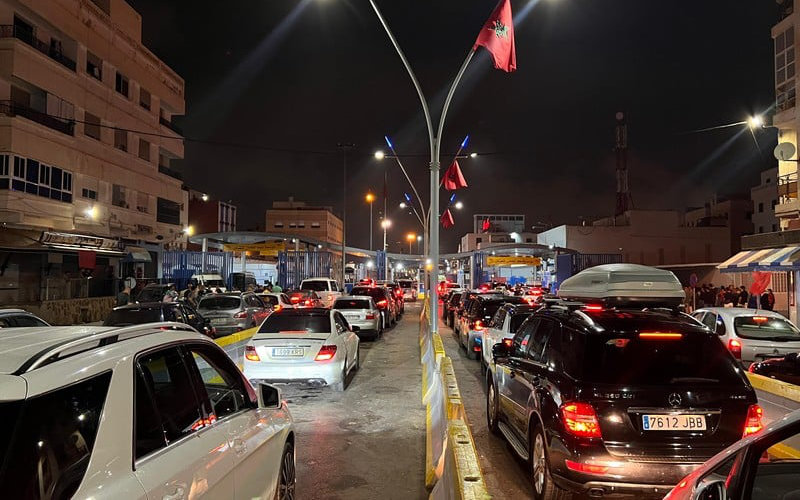Moroccan Expats Stranded in Melilla Amid Travel Chaos

After spending their holidays in Morocco, many Moroccans residing abroad (MREs) are facing huge difficulties in returning to their host countries from Melilla via maritime transport lines.
Long queues, lack of shipping lines, disrupted departure and arrival schedules, increase in boat ticket prices... For some Moroccans residing abroad (MREs), the return to their host country via Melilla turns into a nightmare. "Passing through the city of Melilla means directly waiting under the burning sun for long hours, because there are about four offices on the Moroccan side that participate in the operation. So, members of the Moroccan community arrive hours in advance at the border post without having the slightest idea of the departure and arrival schedules at the port," recounts to Hespress Mohamed, a Moroccan residing in France. As a result, "some Moroccans were unable to board the ferries for which they had booked, even though they had arrived well before the scheduled time." According to him, traveling via Melilla is imposed on MREs. "We chose to travel via Melilla to Malaga in Spain, because the other ports do not provide enough ferries; this is what prompted many people to make the same decision," explains Mohamed.
Faced with this situation, the MRE called for "the need to implement the philosophy of the Marhaba operation and facilitate the return of Moroccans to their country in accordance with what King Mohammed VI has affirmed, because if the complications were intended to discourage the community from passing through this post, this should be offset by the provision of all the necessary possibilities by ferries and other means in the other ports. We wanted to go through the port of Nador, for example, but all the places for ferries to the European shore were booked." And to specify: "more than a thousand cars pass through Melilla instead of other ports, which can ultimately be justified." "The management of this phase should be done on the basis of a large mobilization of human resources, because we have noticed a slowness in the procedures at the Melilla border post, while hundreds, even thousands of members of the Moroccan community have to wait under the burning sun. [...] This slowness negatively affects the departure schedules of the ferries at the port of Melilla," added another Moroccan also residing in France who was able to cross the border post of the city of Melilla in the last two days.
"These facts have personally affected me, because I was unable to take the ferry for which I had booked to embark for Spain; however, the port authorities of the city of Melilla allowed us, after more than a day, to obtain a place, which was the case for many of us as a community," he recounts. Despite the measures taken by the shipping companies, the situation is not very rosy: "The ferries try to modify their travel schedules as much as possible, but there are always Moroccans who miss their trips and have to wait until the next day or after long hours." He mentions another problem faced by MREs: soaring boat ticket prices. "The Moroccan community does not choose to pass through the Melilla border post voluntarily; this results from objective data. Among these, the lack of ferries at the port of Nador, for example, and the high cost of trips compared to those found in Melilla; we are ready to go through the port of Nador, but on condition of guaranteeing all the conditions for safe travel, because this port is known for the fluidity of the procedure for stamping passports," he continues.
Related Articles
-

Activist Sion Assidon Found Unconscious: Mystery Surrounds Disappearance and Garden Incident
20 August 2025
-

Pro-Palestinian MEP Sparks Outrage with Controversial Morocco Map Campaign
20 August 2025
-

Marrakech Fast-Food Brawl: Security Guard Injured as Police Arrest Moroccan Expatriates
20 August 2025
-

EU-Morocco Visa Breakthrough: France Leads as 606,000 Moroccans Granted Entry
20 August 2025
-

Morocco Shakes Up Urban Transport: Alsa’s Dominance Challenged as Government Seeks Modernization
20 August 2025